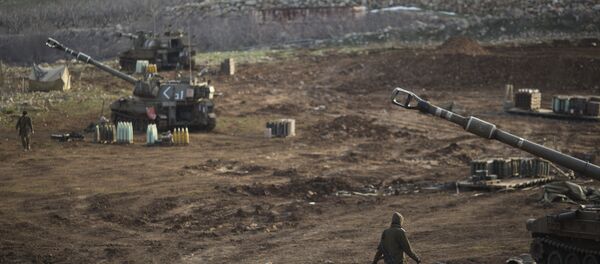"If the Russian government asks us whether to supply the S-300 or not, we would like these systems not to fall into the hands of the Syrians. Earlier, when such questions arose, we used the appropriate channels to discuss them with the Russian leadership. Now it also receives signals from our authorities about the undesirability of such supplies," former Israeli Defense Minister Moshe Yaalon, who left office in 2016, said in an interview.
Yaalon's successor, Avigdor Lieberman, has repeatedly threatened to destroy the S-300 systems if Damascus uses them against Israeli aircraft that regularly strike targets in the neighboring country.
Yaalon himself believes Israeli forces are ready to bypass modern air defense systems.
"You know that the entire Syrian air defense system is based on Soviet or Russian equipment — SA-2, SA-5, SA-17, SA-22 [NATO reporting names for S-75, S-200, Buk and Pantsir systems]. The S-300 is a more powerful system, and we do not like it to appear in Syria, but just as we are ready and able to overcome the entire existing air defense of Syria, we should be ready to deal with the S-300," Yaalon said.
READ MORE: Boosting Syrian Air Defenses Will Scale Down US, Israeli Ambitions — Lawmaker
Mutual understanding between Israeli and Russian army has significantly increased over last decades, he noted.
"We are glad that in the past there were times of the Cold War when Israeli pilots were confronted by Soviet pilots or SA-2, SA-3 [S-125] air defense systems under Soviet control. Since 1991, we have the official, open relations. That does not mean that we look at all the same questions, but we have channels to talk with each other… Therefore, we manage to find mutual understanding on many issues," Yaalon stated.
READ MORE: Russian Arms Exporter to Supply S-300 to Syria If Russian Gov't Permits
On April 14, following US-led strikes on Syria, Chief of the Main Operational Directorate of the Russian General Staff Col. Gen. Sergey Rudskoy said Russia might consider supplies of the S-300 air defense systems to Damascus.
Back in 2010, Damascus contracted the supplies of S-300 systems, the contract was canceled at the request of Israel, which feared for its airspace.
Israel-Russia 'Hotline' Prevented Russian Jet From Downing, Ex-Minister Says
The so-called hotline that has been used by the Israeli and Russian military in Syria over the past three years has helped prevent a Russian jet that almost entered Israel’s airspace from potentially being shot down, former Israeli Defense Minister Moshe Yaalon told Sputnik.
"[The 'hotline'] saves lives, since it helps to avoid misunderstandings. At the beginning of the Russian operation in Syria, there was a case when a Russian pilot had almost crossed [Israel’s] border in the Golan Heights. If it had been a Syrian jet, we would have downed it. But we realized it was a Russian jet and used the 'hotline' to communicate with the Hmeymim [Russian airbase in Syria]. ‘Your jet is about to enter our airspace. Attention!’ The matter was solved immediately," Yaalon stated.
Yaalon was one of the developers of the information-sharing mechanism, which has been preventing aerial clashes and other dangerous incidents between the two countries since 2015 when Moscow launched its aerial anti-terrorist campaigns in Syria.
In September 2014, Israel shot down a Syrian fighter jet which had infiltrated Israeli-controlled airspace over the Golan Heights.
READ MORE: Israel Closes Airspace Over Disputed Golan Heights Amid Syria Strikes — Reports
Israeli-Syrian relations are strained, particularly over the disputed region of Golan Heights. Israel occupied the Golan Heights in the 1967 Six-Day War and annexed the territory in 1981. The international community has not recognized the Israeli annexation.
Israel's Operations in Syria Tracked by Russia
Israel does not need to inform the Russian military about its operations in Syria, as the Russian servicemen see and identify Israeli aircraft, but are not interfering in their activities in accordance with the existing arrangements, former Israeli Defense Minister Moshe Yaalon told Sputnik.
"It's not even coordination. The Russians do not need to coordinate their actions with us, and we do not need to coordinate ours with them, and we both know how to recognize each other's planes. We are able to distinguish the Syrian Su-24 from the Russian Su-24…. Exactly, in the same manner, they identify our aircraft and do not interfere," Yaalon said in an interview.
The principle of not interfering with each other lies at the heart of the so-called deconfliction mechanism, which has been in effect for almost three years and is designed to protect both countries from accidental clashes and other conflict situations in Syria.
"We do not need to coordinate, report to the Russian headquarters that we are going to carry out an airstrike, we understand that they are able to identify our planes, they do not interfere with us, we do not interfere with them," he explained.
Israeli officers and their Russian counterparts in Syria communicate in Russian via the "hotline," which once helped prevent a serious incident, Yaalon noted.
"When once, I was the defense minister at that time, we realized that Russia had decided to send its aviation to Syria and later to deploy the S-300 and the S-400 air defense systems, I invited the Russian military attache in Tel Aviv to my office and said: 'We know that you plan to bring troops to Syria. We are not going to interfere in the intra-Syrian conflict, but we have our own interests there, the 'red lines.' Do not bother us, and we will not interfere with you… To avoid misunderstandings, we have a Russian-speaking officer on duty from the Israeli side," he stated.
Yaalon stressed that the hotline was useful in the very first few months when a Russian aircraft was about to enter the Israeli-controlled airspace by mistake.
"If it was a Syrian plane, we would have shot it down, but we realized it was a Russian plane, and we used a hotline to contact Hmeimim: 'Your plane is about to enter our airspace. Be careful!' The issue was resolved immediately," he said.
About a year before, the Israelis, under similar circumstances, shut down the Syrian Su-24 bomber over the part of the Golan Heights controlled by them.
"As of now, there was not a single incident caused by misunderstanding, as it happened when the Turks shot down the Russian Sukhoi in northern Syria. We found a way not to interfere with each other," the former minister added.
READ MORE: Israel's 2007 Attack on Syrian Facility: A Warning Signal to Iran
One of the most serious incidents occurred three months ago when, in response to the invasion of an unmanned vehicle identified as Iranian, the Israeli Air Force attacked an airbase in the Palmyra area and then, having lost the F-16 fighter from the Syrian air defense fire, bombed a dozen more targets in the Damascus area, including anti-aircraft missile systems and facilities with alleged "Iranian presence" in the neighboring country.








